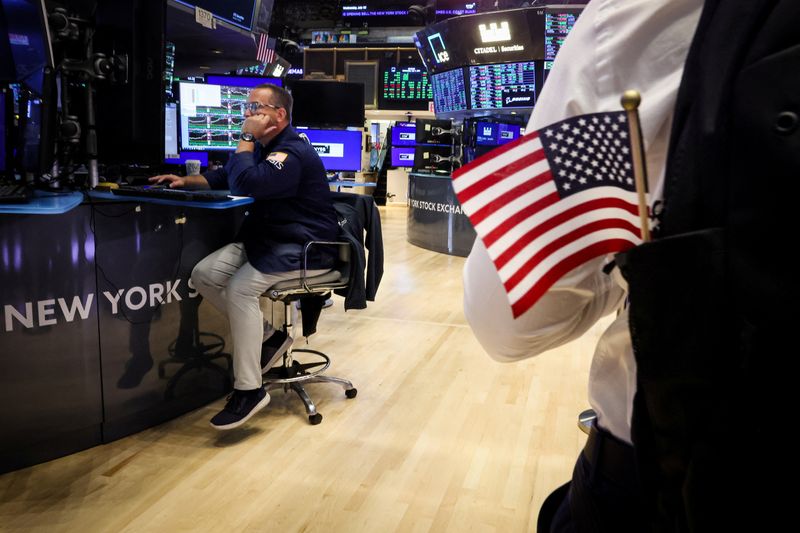By Saeed Azhar
NEW YORK (Reuters) – U.S. stocks could fall 10% to 13% this year as a sell-off in seven mega-cap stocks earlier pushed broader markets to record highs, a top executive at Morgan Stanley Investment Management (MSIM) told Reuters.
“The market valuations on a standalone basis appear to be stretched, and therefore a 10% to 13% annual decline or correction is very possible,” Jitania Kandhari, deputy head of investments for MSIM’s solutions and multi-asset group, said in an interview.
The seven mega-cap stocks, also known as the Magnificent Seven, are Microsoft (MSFT), Apple (AAPL), Alphabet (GOOG), Amazon (AMZN), Nvidia (NVDA), Meta Platforms (META), and Tesla (TSLA).
“We will start to see convergence between the rest of the market and Mega 7, and that will continue,” Kandhari said. MSIM manages $1.5 trillion in assets.
Still, big tech companies generate cash and have stronger operating results than the companies that typically drive other periods of market weakness, she said.
The predicted declines are likely to be more orderly than the dramatic losses of the early 2000s, when the dot-com bubble burst for technology companies with inflated valuations.
“I don't expect a tech correction like we saw in 1999-2000 on the Nasdaq this time,” she said.
MSIM is underweight in technology stocks.
U.S. stocks are more expensive compared to their global peers, Kandhari added. The S&P 500 index trades at a multiple of about 21 times forward earnings.
“If we see earnings growth that comes along, that number could go up,” Kandhari said. “But given the current traction, 16.5 to 17 times is a good number on the S&P.”
The tech-driven Nasdaq Composite trades at 28 times expected earnings, outperforming the MSCI All Country World Price Index, which trades at 18 times.
The S&P 500 index closed at 5,463.54 on Monday, down 3.6% from a record close of 5,667.20 on July 16.
Industrial stocks are attractive right now, Kandhari said. Stocks of companies that produce consumer goods and discretionary goods are also attractive, given Americans' resilient spending.
“The interest rate sensitivity of the economy has come down,” Kandhari said. “Companies have been borrowing for the long term, so higher rates haven't hit them as hard as people expected.”
MSIM is also buying more financial stocks, which are benefiting from a steeper yield curve in U.S. Treasuries, Kandhari said. Short-term yields have fallen faster than long-term yields in recent weeks.
Yet the curve is currently inverted, with short-term yields higher than long-term debt. A return to an upward-sloping yield curve would lower funding costs for banks and encourage more lending.
(Reporting by Saeed Azhar; Editing by Lananh Nguyen and David Holmes)

